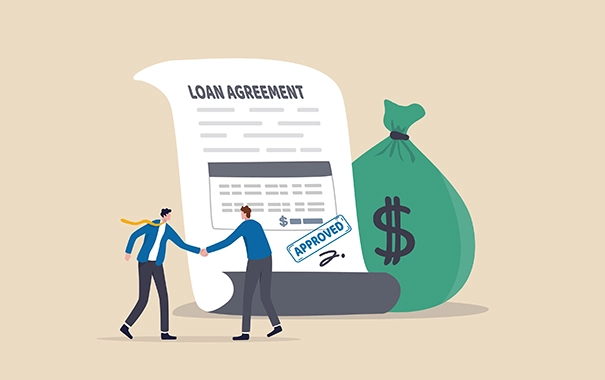The definition of a loan is money borrowed that you must repay with interest over the agreed tenure. There are two types of loans: secured (like a Loan Against Property) and unsecured (like Personal Loans).
When you’re looking to get a secured loan, you might come across a term called “collateral,” and it’s pretty important in matters of financial lending. Think of it as a safety net for the lender, but it’s your net, and you’re putting it on the line. This guide will help you understand what is collateral, why it’s important, and how it affects your loan terms.
Understanding the basic meaning of Collateral
So, what exactly is collateral? It’s something of value—like your house, car, or even a piece of expensive equipment—that you offer to your lender to secure a loan. If you can’t repay the loan, the lender can take your collateral as a repayment. But what makes collateral so important?
-
A Safety Measure for Lenders: It’s all about reducing risk for the lender. If things don’t go as planned and you can’t pay back the loan, the lender won’t be left empty-handed.
-
Better Loan Terms for You: When you offer collateral, you’re more likely to score a lower interest rate because you’re seen as a lesser risk.
For instance,
-
Home Loans: Your home is the collateral. The bank can take over the property if you can’t make payments.
-
Auto Loans: The car you buy is typically the collateral. If you miss several payments, the lender can take your vehicle.
What Can Be Used as Collateral?
Different loans require different types of collateral. Here are a few common examples.
-
Real Estate: This is a top choice for collateral because of its high value and the ease of selling it if things go south.
-
Vehicles: Cars or motorcycles are common for loans specifically taken to purchase them.
-
Personal Valuables: Sometimes, personal use items like jewellery or high-end gadgets help secure smaller loans.
How Do Lenders Value Collateral?
Before a lender accepts your asset as collateral, they’ll take a close look at it. Typical assessments include the following steps:
-
Evaluation: They’ll evaluate how much your collateral is worth to ensure it covers the loan amount.
-
Legal Check: They’ll check if anyone else has a claim on your asset or if it’s mixed up in legal issues.
-
Approval: If everything checks out, your asset is accepted as collateral, and your loan terms are set.
Legal Details and Your Responsibilities
Using your assets as collateral comes with its own set of rules and responsibilities.
-
Keep It in Good Shape: You need to maintain the asset because if its value drops, so does the security on your loan.
-
If You Can’t Pay: In case you default, the lender has the right to take your asset through a legal process.
How Collateral Affects Your Loan?
Putting up collateral can affect your personal loan application process and the terms you get, which are generally in your favour.
-
Smoothing the Way for Approval: With collateral in place, lenders are more inclined to approve your loan, as it mitigates their risk. This could potentially increase your chances of understanding what a pre-approved loan’s meaning is.
-
Negotiating Power: You can often get better interest rates and more comfortable repayment terms when you offer valuable collateral.
Collateral vs. Non-Collateral Loans – Which Fits Your Financial Strategy?
Deciding between a secured and an unsecured loan depends largely on your financial circumstances and your comfort with using assets as loan security.
This section will help clarify which might be the better choice for your financial strategy.
-
Interest Rates and Loan Terms: Secured loans typically come with lower interest rates and more favourable repayment terms due to the reduced risk to lenders. This can be appealing if you’re looking for cost-effective borrowing options.
-
Loan Approval Chances: Secured loans may be easier to obtain if you have a less-than-stellar credit history. Lenders get ready to consider risky borrowers if there’s collateral backing the loan.
-
Financial Flexibility: Unsecured loans offer less risk of asset loss and might be suitable for those who do not have substantial assets or prefer not to expose their property or savings to potential seizure.
Conclusion
Collateral is more than just an asset used to apply for personal loan; it’s a crucial part of the lending process that benefits both the lender and the borrower. By understanding the ins and outs of collateral, you can make more informed decisions and work through the loan process more confidently.



